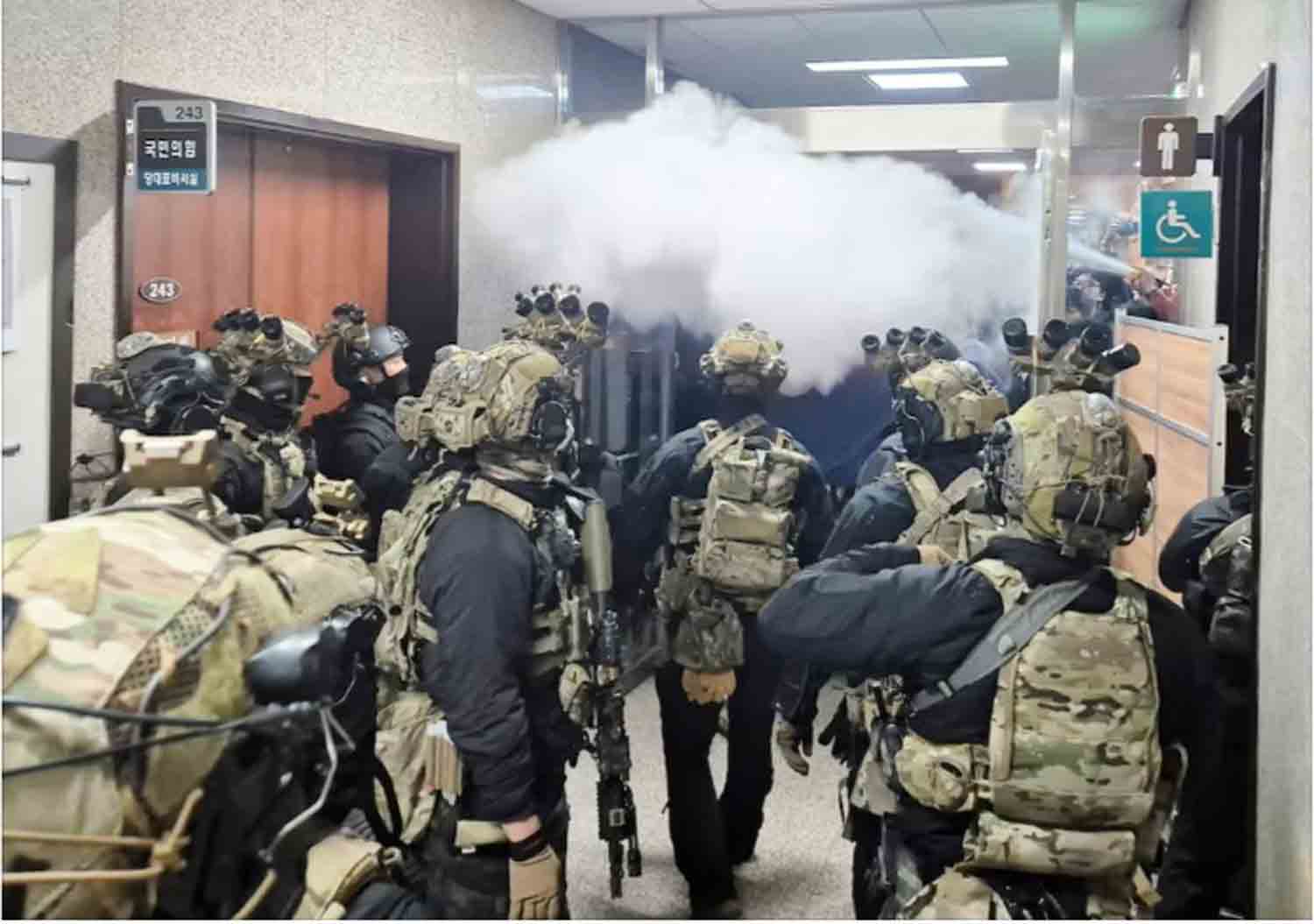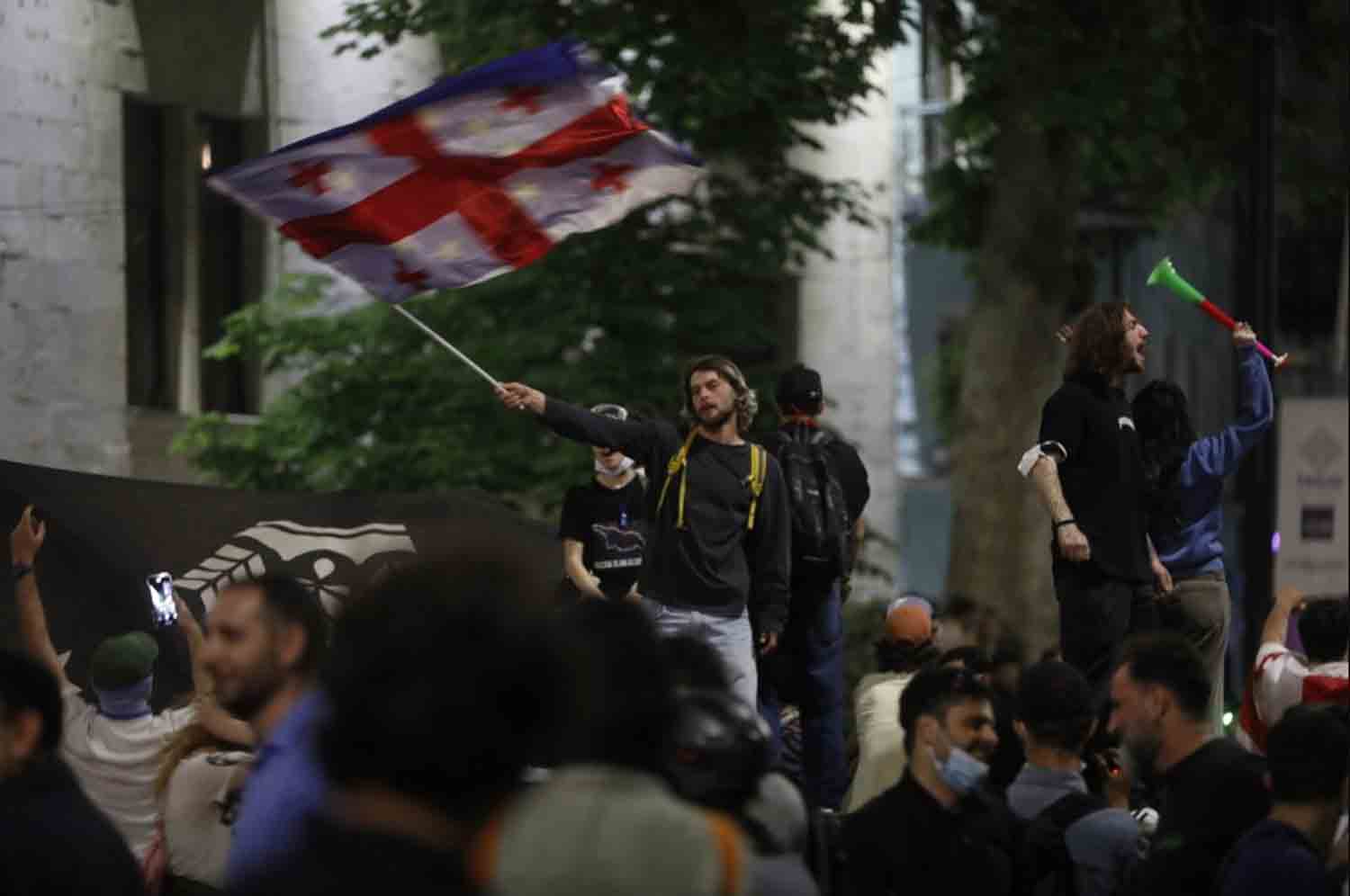The political turmoil that led to South Korean President Yoon Suk Yeol‘s brief attempt to impose martial law (rescinded merely five and a half hours after its announcement) did not arise unexpectedly. Although the opposition has been quick to promote its own interpretation of events, it is clear that the circumstances are intricate and warrant a more thorough examination.
Contextual Overview
The roots of this issue trace back to the 2022 South Korean presidential elections. During this period, Yoon Suk Yeol, a former prosecutor general who had shifted to the conservative side following a dispute with then-President Moon Jae-in—despite having previously prosecuted two conservative leaders—secured the presidency by a mere 0.73%, marking an exceptionally narrow victory in the nation’s electoral history.
From the outset, Yoon encountered significant obstacles, as the opposition party, the Democratic Party, maintained a qualified majority, holding just over half but less than two-thirds of the National Assembly seats.
This power imbalance enabled the Democratic Party to obstruct presidential initiatives while advancing their own policies, which were frequently met with presidential vetoes. Consequently, this deadlock stifled legislative progress and exacerbated societal polarization.
The parliamentary elections held in April 2024 did not significantly alter the political landscape. Although these elections were characterized as a notable setback for the ruling party, the conservatives actually received a marginally higher number of votes compared to four years prior (108 votes versus 103). The Democratic Party was unable to achieve a two-thirds majority; however, it maintained a qualified majority, enabling it to pass or obstruct legislation without needing to consider the opposition. It became evident that the legislative paralysis affecting the national assembly would continue throughout Yoon’s term.
At the same time, the government launched criminal investigations against the contentious opposition leader, Lee Jae-myung, who had effectively transformed the Democratic Party into a personal following. There are significant grounds for the accusations against him, and irrespective of the prevailing political divisions, he would likely have faced imprisonment—especially given that five key witnesses in various cases either died or took their own lives before they could provide testimony. In one instance, he received a suspended sentence, while another case ended in acquittal, which was regarded as a legal anomaly. Nevertheless, he is still confronted with four additional legal challenges.
Considering that even a suspended sentence upheld by the Supreme Court would terminate Lee’s political career, the scenario quickly turned into a contest of “who will outmaneuver whom first”: either the government would succeed in convicting the Democratic Party leaders, or the party would manage to initiate impeachment proceedings against the president.
Internal conflicts within the ruling party, intensified by a movement known as “People for Impeachment” and supported by various NGOs, including labor unions, university academics, and Catholic leaders, theoretically provided the opposition with an opportunity to gather 200 votes—sufficient to initiate impeachment proceedings regardless of the reasons behind it. Nevertheless, many of the allegations made against the president by his adversaries are as unfounded as his own assertions regarding anti-state or pro-North Korean elements, which he cited to rationalize the declaration of martial law.
Analysis of the attempted coup and its potential motivations
The incidents that transpired during the brief period of “martial law” bring to mind the military coups orchestrated by former South Korean leaders Park Chung-hee and Chun Doo-hwan, echoing the adage, “History repeats itself, first as tragedy, second as farce.”
At 11 PM local time on December 3, following a private meeting reportedly called by the Minister of National Defense, President Yoon addressed the public, declaring martial law for the first time since 1979. He stated it was necessary to safeguard the Republic of Korea from the threats posed by North Korean communist forces, to eliminate the so-called pro-North Korean anti-state elements undermining the freedom and well-being of the populace, and to uphold the constitutional order.
Yoon accused the opposition of immobilizing the government through anti-state actions. “The National Assembly has turned into a refuge for criminals, hindering the judicial and administrative systems and seeking to undermine the free democratic framework through legislative tyranny,” he stated.
Following Yoon’s speech, General Park An-soo, the commander of martial law, issued a decree prohibiting all political activities, including protests and political parties. Military vehicles were deployed in the city; however, despite the blockade of the parliament building, lawmakers, supported by the public, successfully entered. A total of 190 members of parliament then voted unanimously to revoke martial law in line with the constitution. Military forces began to withdraw, and shortly after, the president addressed the nation again. He expressed his desire to protect the country, but stated that due to the parliament’s opposition to his decision, martial law would be lifted.
The situation became increasingly complex when it was revealed that neither the Prime Minister of South Korea nor the head of the ruling party had been made aware of the president’s decision. The ruling party leader was among the first to denounce the action as inappropriate and voted against it in the National Assembly. The news of the imposition of martial law even reached officials in Washington. US Deputy Secretary of State Kurt Campbell expressed that the United States was closely monitoring the situation with “grave concern,” emphasizing that democracy is fundamental to the US-South Korea alliance and that any political conflicts should be resolved peacefully and in accordance with the law.
In South Korea, the public did not perceive the situation as dire, particularly since the Democratic Party has been warning of a looming dictatorship and encouraging protests since their leader faced the threat of imprisonment. Consequently, Yoon’s actions backfired, drawing criticism even from leaders within his own party. It is crucial to note that the current South Korean military differs significantly from its past during the dictatorship; it is not inclined to use force against civilians. In this light, it is reassuring that the president chose to avoid actions that could have led to violence.
Interestingly, Yoon Suk-Yeol’s decisions also left Pyongyang perplexed. Instead of a comprehensive morning news segment, North Korean state media primarily played music. Meanwhile, North Korean newspapers reported that yet another “progressive organization” had called for impeachment, although they did not reference the recent developments. As of this writing, the North Korean Central News Agency has yet to issue a statement on the situation.
What might have led the president to undertake such a seemingly ill-advised action?
One theory posits that Yoon simply succumbed to pressure. Another suggests that either he or his advisors—reportedly, the idea of martial law was proposed by Minister of National Defense Kim Yong-hyun, a former head of the presidential security service and Yoon’s former classmate—miscalculated the capabilities and effectiveness of South Korean security forces in an attempt to preemptively address the situation. A third theory indicates that the decision may have been made impulsively due to external pressures, compelling the president to commit fully.
Additionally, there is a notion that misinformation from Yoon’s opponents may have influenced him into making a decision that could lead to his political demise. It is important to recognize that President Yoon is not an experienced politician. Having transitioned from the role of prosecutor general to the presidency just a year prior, he may not fully grasp the intricacies of bureaucratic operations, especially given that the prosecutor’s office in South Korea operates as a militarized entity with stringent internal discipline. This situation draws parallels to the Park Geun-hye administration, where a close-knit group of advisors swayed the leader through selective information.
Some conspiracy theorists speculate that the United States may have had a hand in this situation. Although Yoon maintains a pro-American position, he has not changed his approach to Ukraine, resulting in a delegation led by Ukrainian Minister of Defense Rustem Umerov leaving South Korea without any agreements. With the increasing relationship between Moscow and Pyongyang, there were concerns that South Korea might soon cross a “red line” by providing military assistance to Kyiv, but this did not materialize. Consequently, it is plausible that the outgoing Biden administration may have shared some “reliable intelligence” with Yoon, prompting him to take significant risks.
What lies ahead?
A setback of this magnitude, which has distanced nearly everyone from the president, could be tantamount to political self-destruction. The more Yoon attempts to hold onto power, the further his already low approval ratings are likely to decline; he will face scrutiny for previous errors, making it challenging to communicate his perspective. The opposition has already called for Yoon’s immediate resignation, as an attempt to impose martial law without proper justification is viewed as insurrection. On December 4, opposition parties in the National Assembly submitted a motion to initiate impeachment proceedings against Yoon. Given that several conservative lawmakers supported this move, they are likely to gather the necessary 200+ votes to proceed with the impeachment.
Additionally, the South Korean government and presidential administration have announced their resignations. Among those resigning are Chief of Staff Chung Jin-suk, National Security Bureau Director Shin Won-sik, Chief of Policy Sung Tae-yoon, and other senior officials.
What implications does this have for the major political parties?
Although impeachment may delay the judicial proceedings against the opposition leader, societal divisions continue to be pronounced. Consequently, the Democratic Party is pursuing retroactive legislation aimed at reducing statutes of limitations on specific offenses, which could lead to the dismissal of certain cases. Meanwhile, the conservative party has adopted a strong position, distancing itself from the president, which may enhance their prospects in the forthcoming presidential elections, particularly if the judiciary operates within legal parameters and Lee faces imprisonment.
How does this situation influence global instability and Russia’s interests?
It is crucial to avoid conflating distinct events. The circumstances in Georgia, Abkhazia, Syria, and South Korea are not interconnected. The current situation has been a persistent issue for South Korea, and its development could have occurred earlier or later, contingent on domestic political factors.
A more significant concern for Russia is whether the new administration will be more favorable or detrimental to its interests compared to the previous one. On one hand, the Democratic Party may reverse the former president’s policies, including his efforts to strengthen relations with the US and Japan. Conversely, under President Yoon, South Korea has upheld its reputation as “the friendliest of unfriendly nations” towards Russia, while Democrats typically favor populist approaches and a pro-European stance that may lead them to support Ukraine.
Both conservative and democratic factions in South Korea are significantly shaped by the influence of the United States. The Democratic Party’s discourse on achieving strategic autonomy from the US primarily reflects internal conflicts within the party: as conservatives advocate for a robust alliance with the US, Democrats feel compelled to challenge that perspective. This dynamic necessitates making concessions in other areas to maintain some degree of flexibility on sensitive topics. President Yoon has shown complete alignment with Washington regarding North Korea while maintaining a degree of adaptability concerning Russia and China. Conversely, Democrats tend to focus on North Korea, which may result in them compromising their stance on Russia and China.
In summary, the context surrounding the declaration of martial law is intricate, and it would be overly simplistic to assume that the president aimed to establish a dictatorship but was opposed by the populace. It is evident that South Korea’s political landscape is poised for significant developments in the near future, so it is advisable to stay informed.
Discover more from Defence Talks | Defense News Hub, Military Updates, Security Insights
Subscribe to get the latest posts sent to your email.





